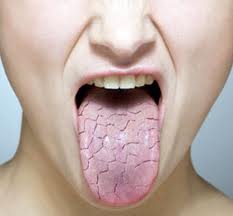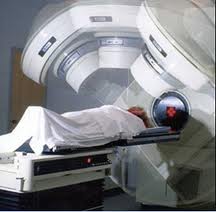Saliva has many different functions; to name a few, digestion, lubrication, to help you taste food, to protect your teeth from tooth decay, helping you swallow food, and protection your mouth from infection. It is produced by the many salivary glands in out mouth. There are 3 pairs of major salivary glands (the parotid glands, the submandibular glands and the sublingual glands, one of each on each side of the face) and over 600 minor salivary glands. These glands are connected by a duct and open into the mouth via small orifices. Sometimes we take saliva for granted such that we don’t realize how important it is until we’ve lost it. A normal person produces 4-6 cups of saliva daily. If the production decreases, he or she will have symptoms of “dry mouthâ€, or “xerostomiaâ€, resulting in a great discomfort and inconvenience. It is a common phenomenon especially among middle aged and elderly women.

Dry and fissured tongue


